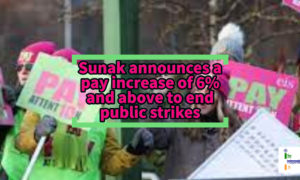
UK’s new health and social care tax aims to reform the National health Services
The British Prime Minister – Boris Johnson today, i.e., Tuesday, September 7, 2021, announced a new health and social care tax, which will be introduced across the United Kingdom (U.K.) to pay for reforms to the care sector and National health Services (NHS).
To be charged at 1.25%, the tax would raise £ 36 billion for frontline services in the next 3 years. He accepted that the new tax broke the manifesto pledge and that the Coronavirus (COVID-19) was in no one’s manifesto.
The tax will begin in National Insurance (NI) from April 2022, paid by both employers and workers, and will then become a separate tax on earned income from 2023, calculated in the same way as NI and appearing on an employee’s payslip.
Taking it to twitter, Johnson tweeted,
1: The NHS cared for us when we needed it most, during the worst pandemic in a century.
— Boris Johnson (@BorisJohnson) September 7, 2021
Today I will set out my plan to ensure the NHS has the long term funding it needs so that we can help our NHS as it helped us.
He further tweeted,
2: The NHS heroically treated over half a million COVID patients and administered more than 91 million vaccines.
— Boris Johnson (@BorisJohnson) September 7, 2021
But the inevitable result of this extraordinary effort is that COVID has caused mounting backlogs and the number of patients needing care is at a record high.
Johnson also said that he will set out a plan for social care to ensure that older people get the best possible care, without the fear or anxiety of catastrophic social care costs.
The tax will be paid by all working adults, including older workers and it will be legally ring-fenced to only go towards health and social care costs. Income from share dividends – earned by those who own shares in companies – will also see a 1.25% tax increase.
The tax will be focused on funding health and social care in England, but Scotland, Wales and Northern Ireland will also receive an additional £ 2.2 billion to spend on their services.
The majority of the funds will help catch up on the backlog in the NHS created by COVID-19. It will help in increasing hospital capacity and creating space for 9 million more appointments, scans and operations. Johnson also pledged that by 2024-25, there would be the ability to help 30% more elective patients than before the pandemic.
A cap will be introduced on care costs from October 2023 of £ 86,000 over a person’s lifetime. All people with assets worth less than £ 20,000 will then have their care fully covered by the state, and those who have between £ 20,000 and £ 100,000 in assets will see their care costs subsidized.







